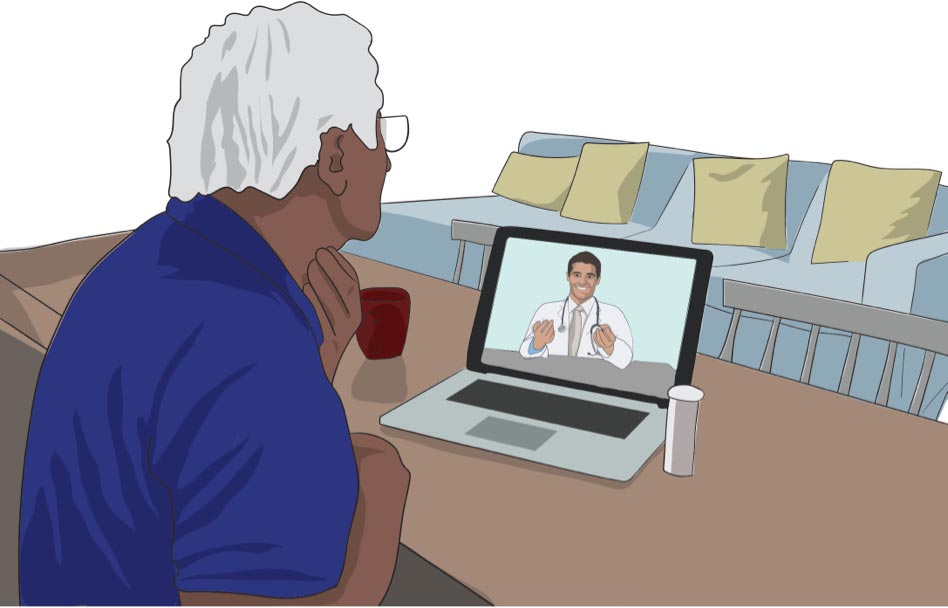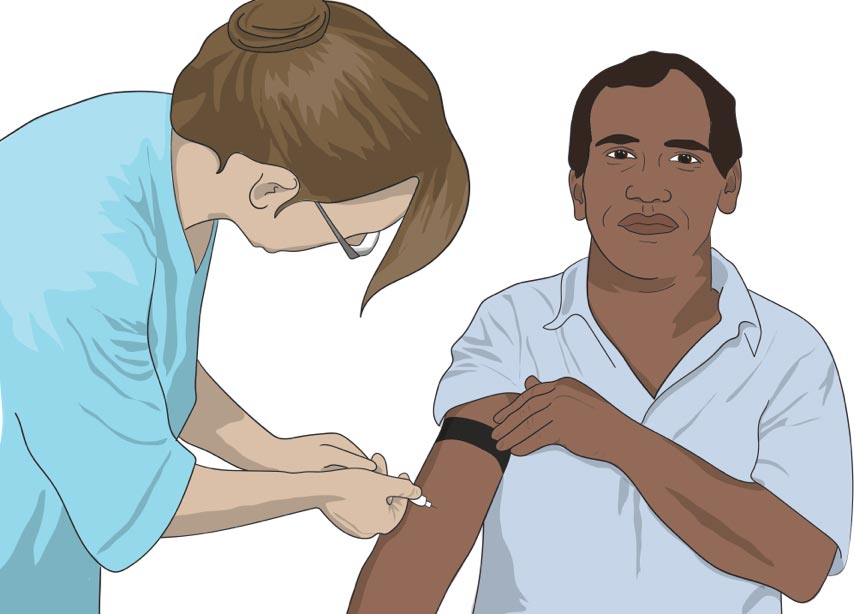- Home
- Cancer in our Mob
- Changes in the body that can be caused by cancer

Cancer in our Mob


Changes in the body that can be caused by cancer
Finding cancer early gives you the best chance of getting better and living well.
Some people may find changes in their body that could be caused by cancer. If you have one of these problems, see your doctor, nurse or Aboriginal and/or Torres Strait Islander health worker. They can yarn with you and have a closer look to find what is causing the changes, and whether it is cancer. The sooner we identify cancer in our bodies, the higher our chances of beating it.
Most changes won’t be due to cancer but staying on top of your health means you will be around for your family and your Mob for a long time.
When you visit your doctor, they can check to work out what’s happening. If think your sexual organs are affected by cancer or have noticed changes to those areas, you can follow cultural protocol and see male and female doctors and health workers.
It may help if you write down questions and take them with you to your appointment.
Your doctor will yarn with you about your needs, answer your questions and tell you where to get information and support. You can ask for information that makes sense to you. Ask the doctor or someone in your health care team to explain anything you don’t understand. You can yarn with your doctor about including traditional healing and cultural practices too as part of your treatment plan.
You can take family or other people to support you at your appointments and tests, or ask if an Aboriginal and/or Torres Strait Islander health worker can be there with you.. They can help gather information for you and work through it with you. Having support is important.
Most people who get checked for cancer find out that they don’t have it.
What are the main things to look out for?
- Having a new cough: if you have a new cough, or you are coughing up blood or you have a cough that is different to usual, or a cough that won’t go away, see your doctor, nurse or Aboriginal and/or Torres Strait Islander health worker to have it check out.
-
Bleeding : if you notice blood in your wee or poo, or any unusual bleeding from that area of your body, see your doctor, nurse or Aboriginal and/or Torres Strait Islander health worker to have it checked out.
-
Being really tired all the time: we all get tired sometimes. Sometimes we just want to lie down, and don’t want to do anything. That’s okay, but if you feel like that all the time, see your doctor, nurse or Aboriginal and/or Torres Strait Islander health worker about it.
-
Changes in going to the toilet: changes in going to the toilet such as trouble doing a poo (constipation) or having very runny poo (diarrhoea). You may also have blood in the poo or on the toilet paper after going to the toilet.
-
Having a lump or swelling: a lump or a swelling can be a sign of cancer. It can be painful or not. It can be in any part of the body, but common places are in the breast, around the neck, under your arms, in the belly or near your groin. If you have a lump or a swelling and you don’t know why, get it checked by your doctor, nurse or Aboriginal and/or Torres Strait Islander health worker
-
Having aches or pain: it is normal to feel sore sometimes, especially at the end of the day or after a lot of physical work. But if there’s a pain or ache that just won’t go away, go for a check-up with your doctor, nurse or Aboriginal and/or Torres Strait Islander health worker.
-
Losing weight when you don’t want to: it is natural to gain and lose weight if you change your eating habits or activity levels. But if you see you’re losing weight and you didn’t mean to, it is important to get this checked.

Having tests
Your doctor or specialist will tell you if you need tests, and where to go to have them. Your personal information will be kept private and only shared with health professionals involved in your care. If you need help getting to your appointment to see the specialist or to have tests, talk to your doctor or Aboriginal and/or Torres Strait Islander health worker. They can help organise assistance for transport and accommodation for you and your family.
Life with and after cancer
FIND OUT MORE
Where can I get help and support?
FIND OUT MORE

